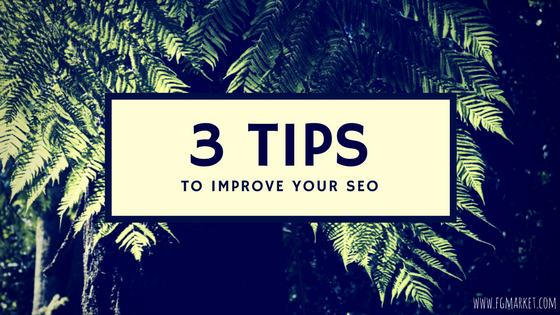
We’ve talked numerous times on this site about the importance of increasing your website optimization (SEO) in order to improve your rankings in search engine results.
Most of us know that things like keywords and optimized meta information are important for getting your site found when people search for specific things.
But, there’s a difference between knowing something, and incorporating that something into your content marketing strategy to get results.
Website optimization is about more than just stuffing your website full of keywords; it’s about applying those tools to your website in natural ways that don’t seem forced.
Here are 3 key ways that you can start incorporating some of the things you know about website optimization into the content you’re creating each day on your website and in your blog.
Keywords
Used to, what’s known as “keyword stuffing” was the way that most marketers approached the idea of using keywords to optimize your website.
For a lot of companies, this strategy worked and continues to work. However, this approach doesn’t work as well as it used to.
Nowadays, Google and other search engines prioritize the variety of your keywords, rather than stuffing your website full of one particular keyword.
For example, if you’re a candlemaking business, you don’t want to just use the keyword “candlemaker” over and over again on your site. Try variations, like “handmade candles,” “homemade candles,” and “artisan crafted candles” to diversify the keywords you’re hitting on your website.
Try variations, like “handmade candles,” “homemade candles,” and “artisan crafted candles” to diversify the keywords you’re hitting on your website.
This helps to increase your site’s organic traffic by hitting those secondary search terms that your customers might be typing into their search engine.
Readability
Readability, also known as skimability, is how easy it is for your customers to skim through your website, and pick up on the information they’re interested in.
But how do you increase the readability of your website, and why does it matter aside from helping your customers?
Readability has a huge impact on your website’s engagement data. These days, Google takes into account how long people stay on your web page, how quickly they leave it, how much they engage with it (such as clicking on links), and more.
To make your website more readable, be sure to:
- Arrange information into bullet points, like this!
- Keep your sentences short.
- Use bold and italicized words to highlight important bits of text.
- Try to keep everything in the active voice, rather than a passive voice.
Link Out To Credible Sources
Linking to credible sources on your website, whether that be through blog posts or normal website content, is important for improving your website’s SEO. Why? Because Google is beginning to pay attention to this as well.
When you link to credible sources or highly influential websites, you’re showing not only your user base but also Google that you are a credible website yourself.
It also opens up new opportunities for your website, and your blog content, to be shared by the website’s that you are linking out to.
When they see that you linked to their website, you open up opportunities for them to share your website or blog post on their social media accounts, website, and other places.
Linking is great for networking!
Take a look at this Whiteboard Friday from Moz for more on external linking and how it affects SEO.
Thanks for reading, and check back next Friday for another helpful marketing tip!

Leave a Reply